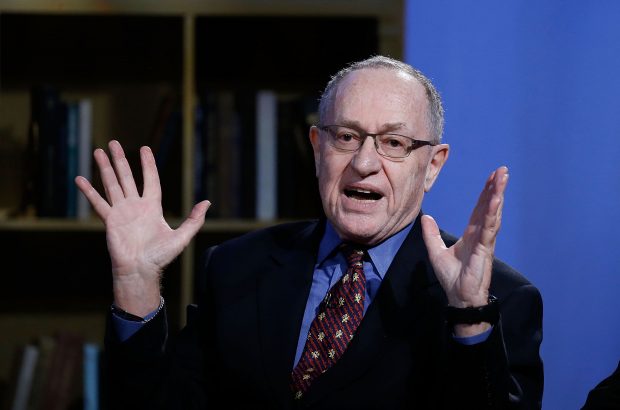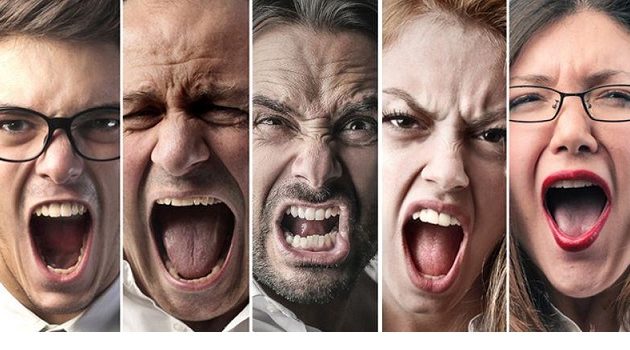 |
| Professor Alan Dershowitz |
On the other hand, I've often thought him a publicity hound, over-eager to enter into any public conversation on any topic for the purposes of self-promotion. This is, to be sure, a common pitfall for public figures whose opinions on various subjects are eagerly sought by journalists.
Additionally, whilst I appreciate fresh, out-of-the-box ideas, I think his hypothesis years back, expressed in his book The Vanishing American Jew, that what would save Jewish America from extinction, would be a renaissance of the Yiddish language and of secular, Yiddishist culture for Jews who find faith in G-d eludes them. When I read that, my immediate thought was this guy is so smart, he's stupid! (Surely you've heard this expression before; it applies to someone who, whilst certifiably brilliant, is so out of touch as to come up with ideas that are incredibly obtuse given the reality of the material world.) In positing a secular Judaism of Yiddish culture to be The Answer to the Problem of the Vanishing Jew, I thought Dershowitz was going down that path. And it isn't that I'm an enemy of secularism, not by a longshot! Although a religious person myself, I am nothing if not sympathetic towards those who cannot be religious, and their dilemna of balancing that secularism with the desire to see the Jewish people survive and flourish. But it takes a blind man, or one who is so smart that they're stupid, to think that Jews, disaffected by religion, would be motivated in any kind of numbers to join in to a resurrection of the Yiddische Bund as the solution to the Jewish demographic nightmare.
That said, I chuckled and thought of him in a complementary light, when I read him declare (I think it was in his book, Chutzpah.) that Harvard Law School kept him as a practicing, observant Jew for several years after he would have drifted away from Jewish practice on his own. How did this happen? When he first accepted his position at Harvard, he felt in his heart of hearts that the move to Cambridge from Brooklyn, would involve his break from the 'yoke' of Jewish practice. But, during his orientation at Harvard, when he was informed that his duties would sometimes involve teaching classes or proctoring exams on Saturdays - the Jewish Sabbath - he rebelled and refused on the basis of the need for Jewish observance. And then, having invoked the needs of Jewish ritual, he did not make his break from Jewish observance until some time later - presumably, when he had enough seniority at Harvard to decide for himself when he was going to work. Why did this make me see him in a complimentary light? Because in my role as a military chaplain, I occasionally encountered troops who would use the exingencies of Jewish practice, to avoid duties in the Sabbath, or to get extra food allowance for keeping kosher, but without Dershowitz's integrity.
Anyway, Alan Dershowitz has been in the news lately, for two things: firstly, his defense of President Trump from those on the Left who would deny him due process from their vicious innuendo meant, with no denial, to topple his presidency prematurely. And secondly: his complaint that his 'high-falutin' friends in wealthy, Left-wing circles in the rarified social circles of the uber-expensive summer enclave on Martha's Vineyard in Massachussetts, have socially shunned him for the former.
If I may be allowed a slight digression here, I would like to delve into the First Amendment and the issue of free speech. As my rabbinate took me around the world, I found that outside the USA, those who staunchly advocate freedom of speech, think of that right in more limited terms than their American cousins. Most non-Americans believe that an almost-unfettered right of free expression is not a good thing. I say, 'almost unfettered,' because US law established long ago that one does not have absolute freedom of speech. The example usually given, is that one has no right to yell, "Fire!" in a crowded venue, an act that would almost be guaranteed to case deaths or at least injuries as a general panic caused people to get trampled in the melee that would predictably ensue. But the limitation of not having the right to yell fire in a crowded place - where there is not fire - has always been considered to be a very limited, er, limitation. So, for example, the American Nazi Party was given the go-ahead to march in Skokie, Illinois - a Jewish enclave that at the time, was home to a sizable population of Holocaust survivors - in the year 1977. It was the American Civil Liberties Union (ACLU) that argued for the right of the Nazis to march, even though it was obviously provocative, as an expression of their First Amendment rights.
Jewish law does not validate Freedom of Speech to that extent. The laws of Taharat Halashon - 'purity of speech' - forbid passing negative information about someone - even if true! - unless there's a really compelling reason to do so. And the respective civil law of other countries with which I'm familiar - in particular, Australia and the UK - also limit Freedom of Speech when that speech is disparaging to someone else even when true. These sentiments notwithstanding, I have listened to individuals - Jews and otherwise - in these countries, slander others to no end, and with no remorse whatsoever.
Alan Dershowitz is a long-time member of the ACLU, having served on its national board years back. In his defense of President Trump's civil liberties, he has excoriated the organization for its silence on the matter in contrast to its stance in earlier times of defending the rights of people, with whom the organization disagrees. The ACLU, as Dershowitz charged, has morphed into ACLU 2.0, no motivated by specific political ideologies whereas in past time the organization scrupulously avoided even the appearance of political preference. Therefore, the ACLU has been completely silent on whether the Department of Justice has violated the President and certain associates' civil liberties, where Dershowitz - one of the nation's foremost authorities on the subject, believes they clearly have. And how has the ACLU responded? Well, they haven't specifically addressed Dershowitz's complaint, but the chairman and director of the organization are on record as stating that in this era of political acrimony, they have changed the parameters and practices of the ACLU from previous generations. Translation: formerly, they stood up even for Nazis in their quest for absolute Freedom of Speech, whereas today, they think there are higher values, ie, defending the ideology of the Left.
As a result of his standing up for the President, Dershowitz finds himself not only at odds with many whom he has considered his friends on the Left; they are shunning him, refusing to attend dinners where he will be present and that sort of thing. This particularly hurts, as he explains, because he has been a stalwart liberal Democrat for over a half-century, and that his recent remarks regarding President Trump are entirely in keeping with his civil libertarian posture that he has always maintained. Dershowitz opines that hatred of Trump is so all-encompassing, so toxic in Left/Democrat circles, that his former friends and colleagues have lost all sense of perspective and rationality.
 |
| Trump Derangement Sydrome afflicts many |
I have noticed the trend, in Jewish circles and elsewhere, to advocate for a limiting of Freedom of Speech when it's speech use in the expression of opinions with which one disagrees. For example, when I was a pulpit rabbi, people would tell me that something I said in a sermon was 'offensive' to them, essentially because they didn't agree with it. And it seems to be happening more and more with the passage of time. I started noticing it after the election of President Obama; one could not express disagreement with anything coming out of the White House without being quickly charged, by someone on the Left, as being a racist. And now, if one expresses any support of the current occupant of 1600 Pennsylvania Avenue, one is quickly labelled a racist/misogynist/homophobe/transphobe/islamophobe/xenophobe or just about any kind of phobe, for expressing any support of the racist/misogynist/homophobe... who dwells at that address. I've certainly felt it, and now Alan Dershowitz is - much more publicly - feeling and complaining about it.
In Part Two of this blog post, to be published after the Jewish Sabbath, I'm going to humbly explain why I ultimately changed my own political affiliation...and suggest why Alan Dershowitz should consider doing the same. But remember, it's not really about Alan dershowitz, but a principle much bigger than him. Standby, and Shabbat Shalom...
No comments:
Post a Comment